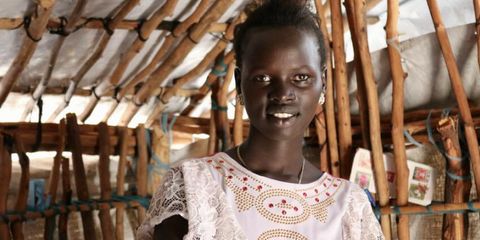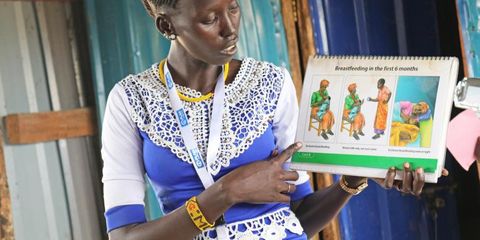Life for girls in Renk, South Sudan
In April 2023 the conflict in Sudan led to 8.1 million people becoming displaced . Over 560,525 people have crossed from Sudan into South Sudan most of whom entered through the Joda border crossing to Renk. Each day more people arrive than are leaving.
Woman walks across the border crossing point in Joda to safety. Photo credit: Plan International / Peter Caton
The high influx of displaced people in the Renk transit centre has put enormous pressure on resources. Originally the transit centre was only intended to host up to 4,000 people, but over 23,000 people are currently sheltering there.
More shelters are urgently needed but funding is limited and there are delays in the delivery of transporting materials.
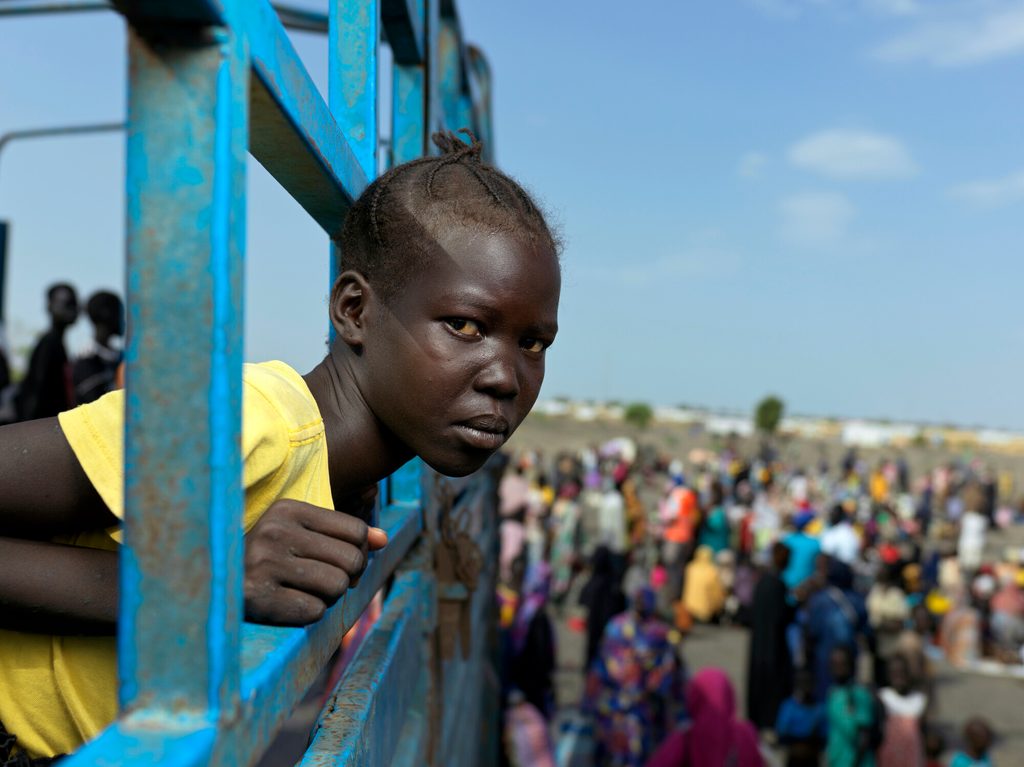
Conditions are poor, overcrowding adds pressure to severely limited resources, flooding has made the area hard to access and reside in, disease is a concern and people who arrive exhausted and traumatised are facing malnutrition, as food and water become increasingly scarce.
Photographer Peter Caton visited Renk in February 2024 to take a snapshot of life for girls who have fled conflict. Here’s what they told Deployable Communications Specialist KC Shreeram and Communications Lead Barbara Kemisa.
Hiteta, 14, on a truck that will transport her and her family to Renk transit centre. Photo credit: Plan International / Peter Caton.
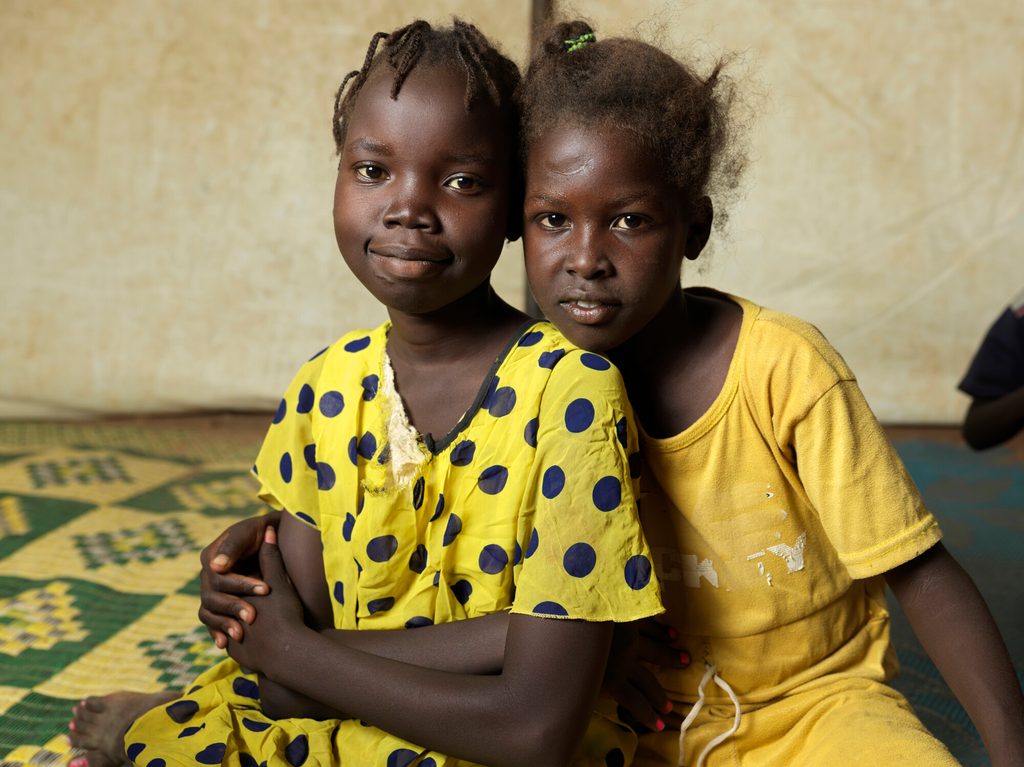
“I come here to meet friends and play with them. My mother asks me to go every day. I love to dance with my friends. I like the dolls most; there are many dolls there and things to play with.”
Originally from Sudan, 12-year-old Lena arrived in Renk with her family after fleeing from the conflict in Khartoum. Lena spends her days at the child friendly space in the centre, a safe space where children living in the centre can spend time playing, forging friendships and recovering from the trauma of war.
“Every day, when we heard the gunshots and saw the smoke and dust from the fighting, it was disturbing and frightening.”
Originally from Sudan, Marian, 15, was forced to flee her country after her home was destroyed in the conflict. Before arriving in Renk, she lived a happy life. Her mother managed a tea shop and her father was a cattle farmer. Since the war broke out their lives became unsafe, so they decided to cross the border into South Sudan where they heard they could find food, shelter and peace at the Renk Transit Centre.
Marian, 15, looks out through gap in the shelter built by Plan. Photo credit: Plan International / Peter Caton.
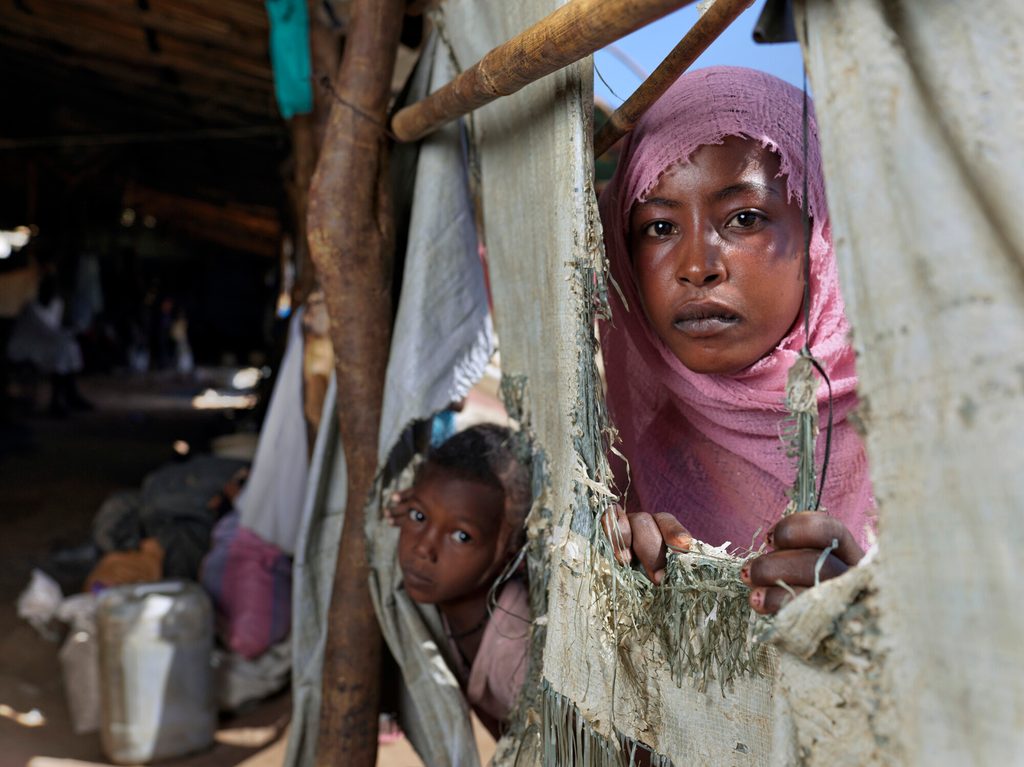
“Our home was burned down, and we hid in various places for almost five months during this challenging time in our lives. We looked for safer places to stay and decided to come to Renk after hearing that food and shelter were provided here along with peace.”
As the days unfold in the camp, Marian grapples with the hard question of what her future now holds.
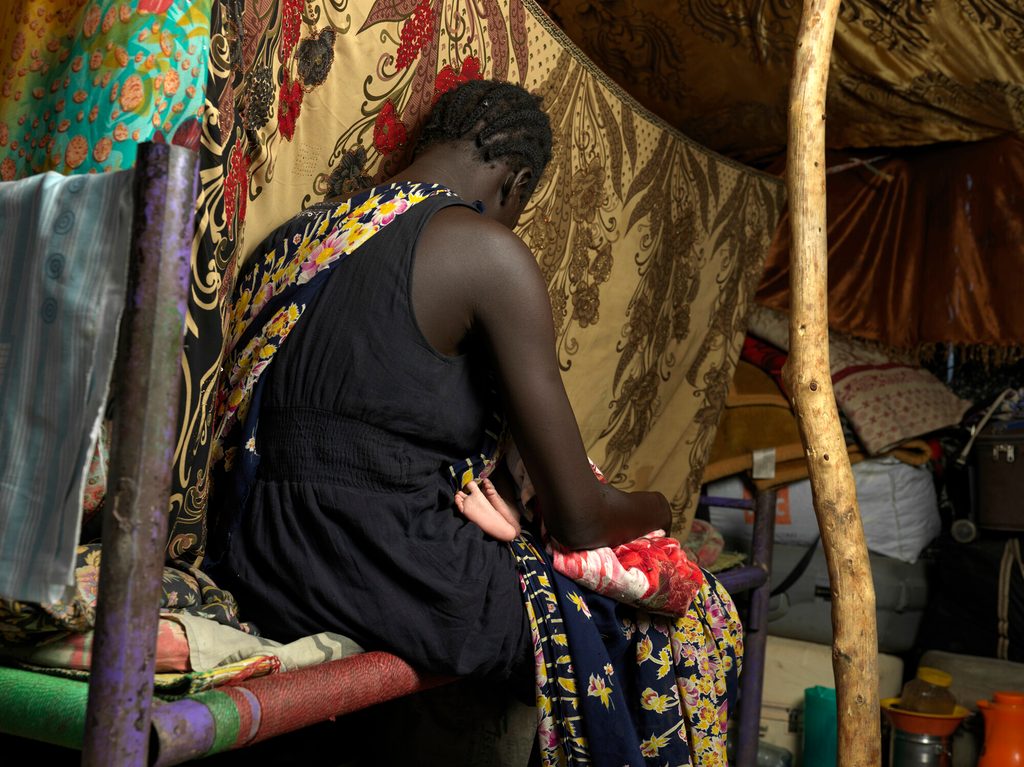
“The soldiers came to our home and shot our dad who was trying to protect us from being taken by the soldiers. They also raped me after killing my dad. I got pregnant from that rape.”
In April 2023, 17-year-old Sara*, who lived in Khartoum at the time, witnessed the most horrific side of the war in Sudan. Her family home was raided by soldiers who shot her father dead in front of her. They then raped her.
Sara*, 17, gave birth to her baby in the transit centre. Photo credit: Plan International / Peter Caton.
Sara was rescued by her neighbours who helped her and her four siblings travel to Renk. With no parents or guardians, Sara has been left alone to care for her younger siblings. They survive on food they can beg from their neighbours who have little to eat themselves.
“I had no mother around, so my pregnancy was difficult. I had no food to eat. I gave birth at seven months with the help of the neighbour.”
“I cannot afford baby clothes or bedsheets. The baby cries all day and night because I have no milk. I don’t have food to eat to produce the milk.”
Sara is overwhelmed and does not even have the strength to look for food for the other children who often cry from hunger.
The Plan International protection team are supporting Sara and have given her cash assistance to help her buy food and other supplies. She also received non-food items including soap, buckets, blankets, mosquito nets and jerrycans and baby clothes.
Sara dreams of going back to school again and getting a good job to care for her baby and siblings.
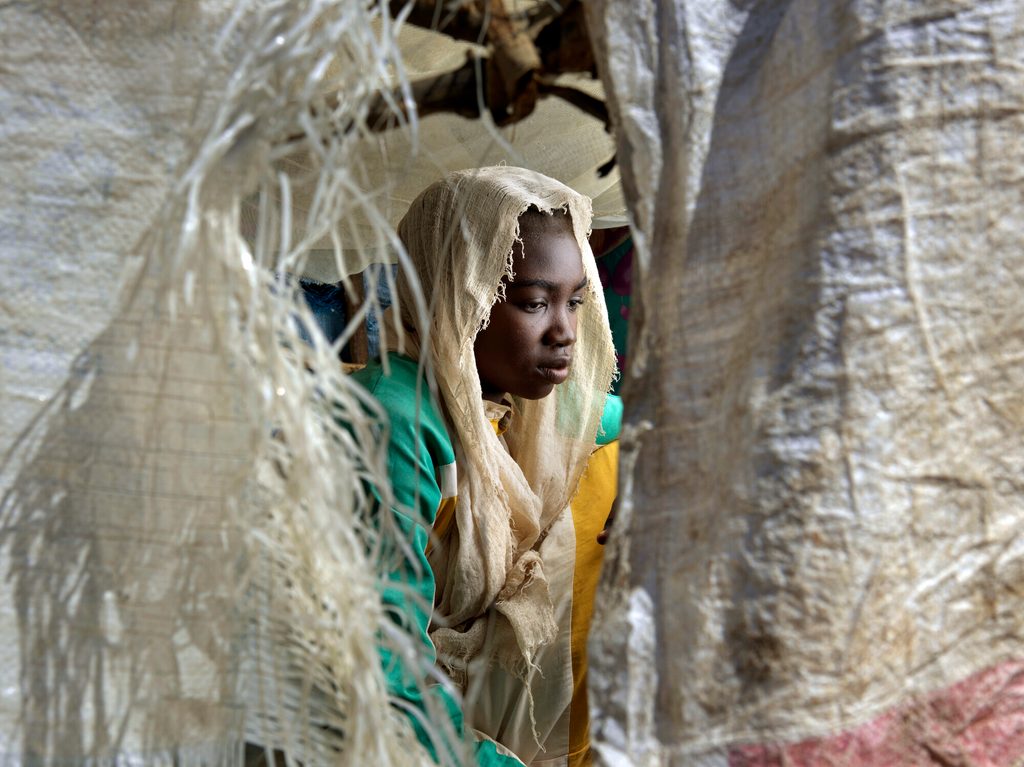
“We came from Khartoum close to where the war started. We wanted to come earlier but there was no car.”
“We heard gunshots on the way and I was scared. I have lost my school and my friends. I want to be a doctor but now my life is interrupted.”
16-year-old Nejuwa and her family have been living in the transit centre in Renk since April 2023, just a few weeks after the war in Sudan started. They used to live in Khartoum, close to where the fighting first started.
She dreams of going back to school, nothing else.
Nejuwa, 16, says she just wants to go to school, nothing else. Photo credit: Plan International / Peter Caton.
“I have been in Renk since June. We lost our mother and left our dad in Khartoum. We don’t know if he is alive or dead.”
“I wish my parents were here. It is hard not having parents around. I cannot be a child. My life is hard.”
Samira is a returnee living in Zero camp, an informal settlement in Renk, she is one of thousands of South Sudanese returnees fleeing the Sudan war. Aged 16, Samira wants to be a teacher, but the war in Sudan has shuttered her dreams.
The eldest of six siblings, Samira has been forced to step up and take care of them all after their mother died and they became separated from their father, who stayed behind in Khartoum when the war started. They do not know if he is still alive.
Samira’s* 5-year-old sister holds tightly onto her doll. Photo credit: Plan International / Peter Caton.
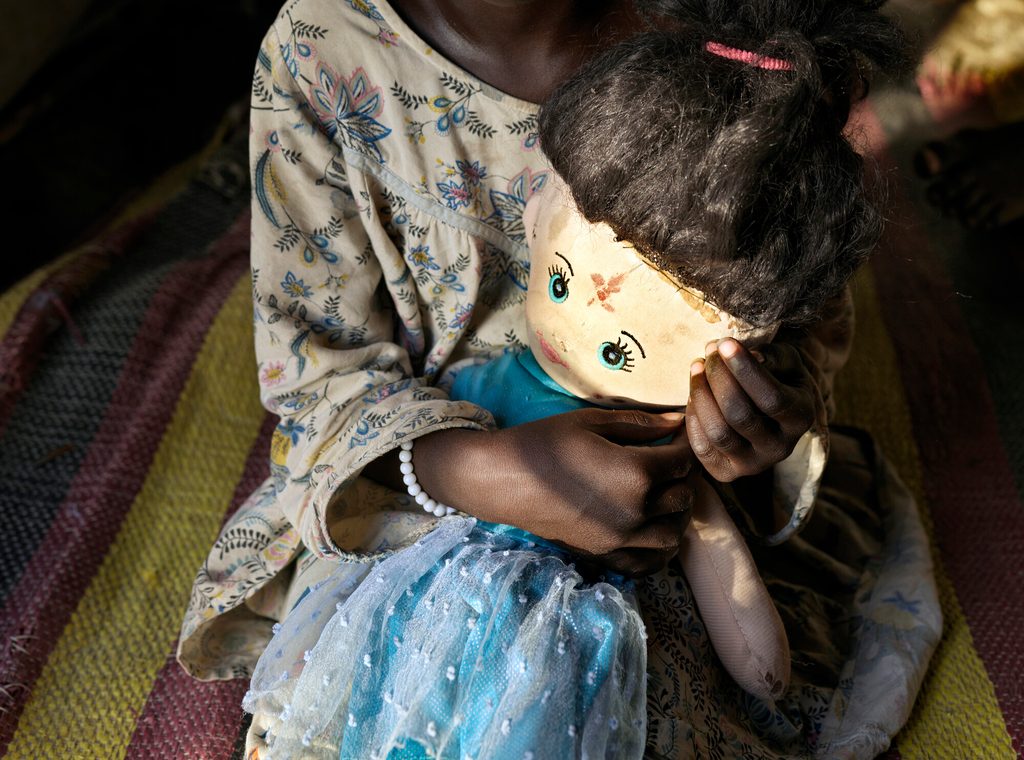
Samira is not happy in the camp, her hope is to go back to school so she can make a better future for herself and her siblings. She also wants her siblings to go to school.
Plan International supported Samira with cash assistance of 135 dollars which she used buy food. However, this is not enough for the family to survive in the long-term.
Plan International is providing vital humanitarian assistance to returnees and refugees in Renk and other areas of South Sudan, including child protection, psychosocial support, education, hygiene awareness raising, cash assistance, food and other critical supplies (such as fishing nets, plastic sheets, sleeping mats and blankets) and building shelters.
Shelters offer protection from heavy rains and hash sunlight and to date 22,700 people have benefited from them.
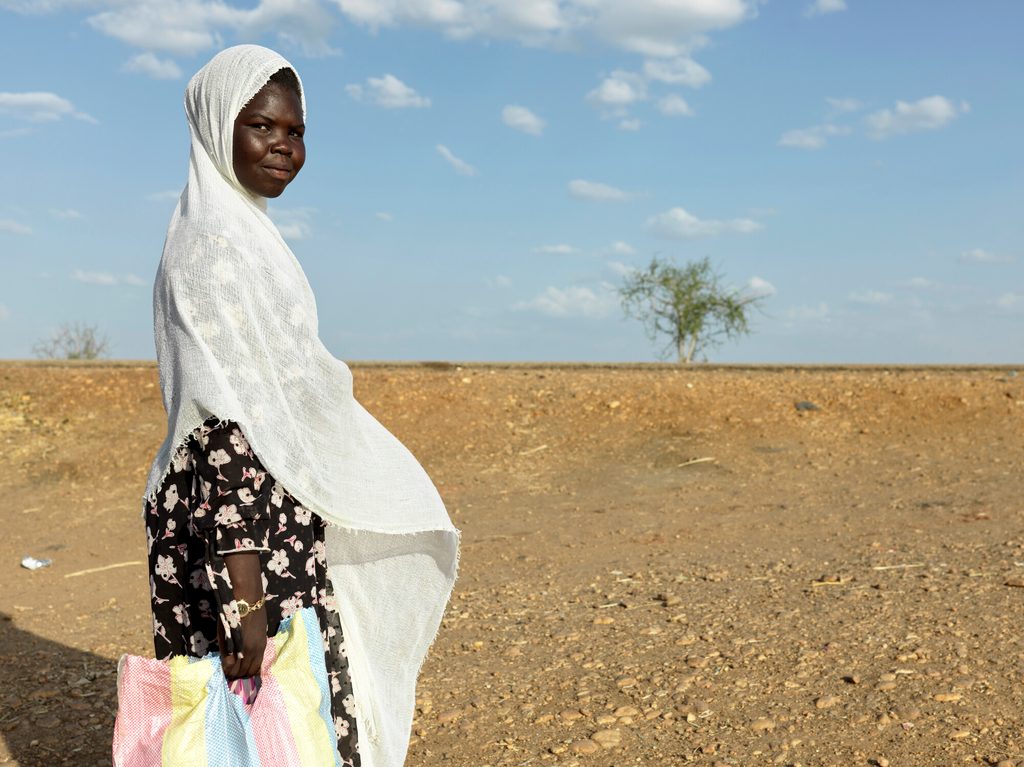
We are also running recreational activities and child friendly spaces for children, to provide a sense of safety and normality, as well as life skill sessions for adolescents reaching 506 children.
Plan International is responding to the crisis inside Sudan and in neighbouring countries, including Chad, CAR, South Sudan, Egypt and Ethiopia. As refugees continue to flee across Sudan’s borders, host communities in areas of arrival are struggling and a protracted conflict in Sudan could tip the entire region into a humanitarian catastrophe.
* Name changed to protect identity.
